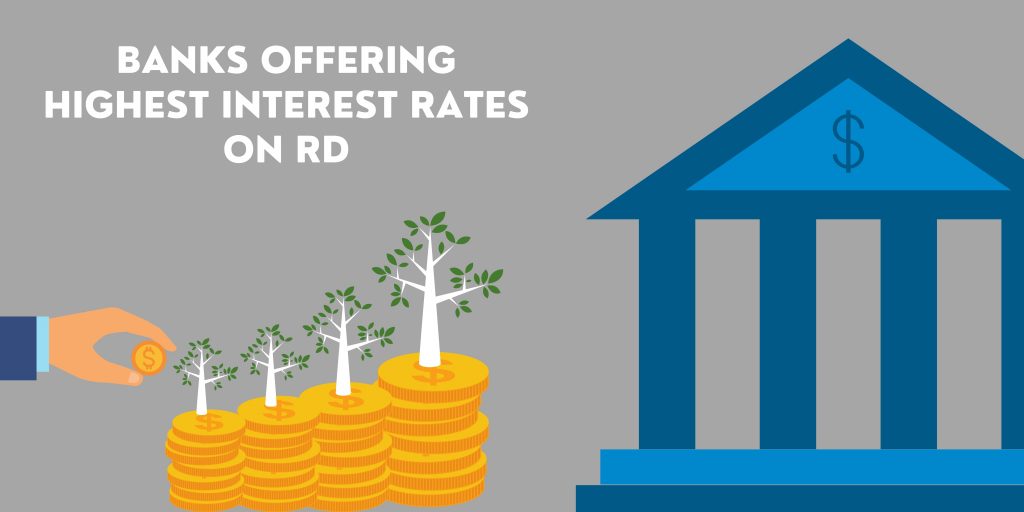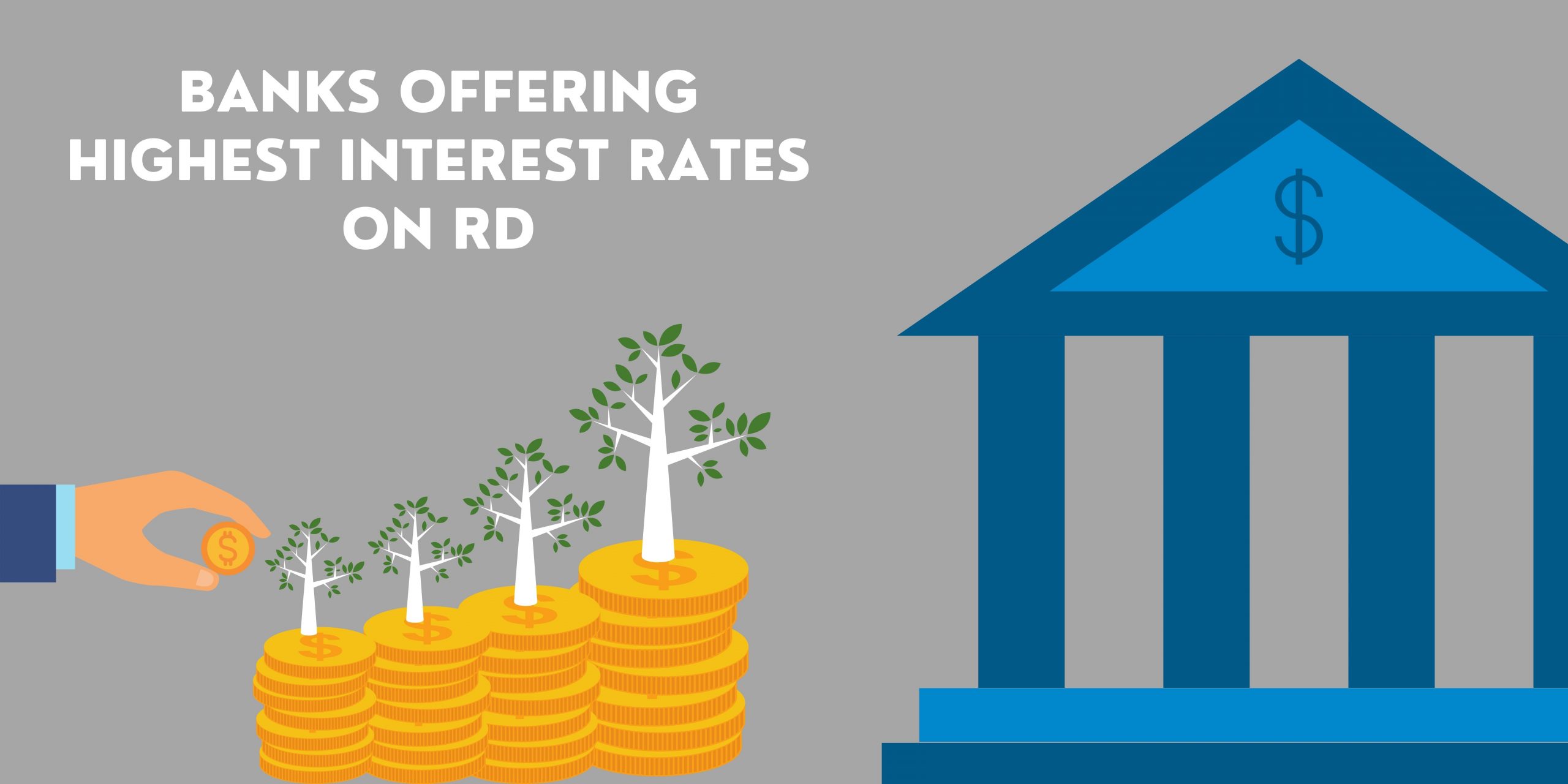Top 10 Indian Banks Offering Highest Interest Rates On Recurring Deposits – upto 6%
If you are looking to grow your savings, but are only able to put aside a small amount every month (if at all), a recurring deposit might be just the option for you.
In a recurring deposit, investors put in a sum of money for a fixed interval, typically between one year and five years, but you might even find options that allow you a shorter period, like six months or for longer periods like 10 years. This allows them to start investing without having a lump sum of capital. Many investors are often unable to reach a sizable lump sum investment capital amount because they are discouraged (or tempted, or both) by tiny monthly savings which they end up spending before they have the chance to invest. A recurring deposit does away with this obstacle to saving and accessing interest-bearing investment products.

The benefits of a recurring deposit
- It allows you to start small. You don’t need to gather as much as Rs 10,000 (or more) as you would need for an FD
- It encourages savings, especially for short term goals like holidays, buying/upgrading a car and higher education
- For most part, there are no penalties on you missing a month, should you face some financial emergency
- A recurring deposit allows you to earn interest and keep up with (or even beat) inflation
- Withdrawal can be done prematurely, but you will get interest only for the period that you retained the capital for. You might lose a few days worth of interest and interest is only payable if you stayed invested for at least 30 days.
- Document requirements are simple and straightforward
- You can invest for shorter period
- Although it is a similar product to SIPs (which refer to a payment mode linked to mutual funds), recurring deposits represent fixed income and minimal risk – they have the same risk profile as a fixed deposit, which is preferred by investors with a low risk appetite.
- Interest is taxable – at 10% – only on RD interest if your total annual income exceeds Rs 5 lakh.
Stay fully informed when opting for a recurring deposit
When signing up for a recurring deposit, it is a good idea to explore interest rates being offered by various banks. That means that you will compare SBI’s RD interest rates to HDFC’s RD interest rates and Axis Bank’s RD interest rates and typically choose the one offering the highest interest.
You might want to zero in on the product that not only pays the highest amount of interest and levies the lowest amount of account-related fees and charges, so that you can bring home a good amount of earnings from your investment. For instance, maybe HDFC’s recurring deposit rates are second-highest but because of competitive fees and charges (or a free credit card with a savings account) you get a better deal overall from HDFC, you might want to choose HDFC for your recurring deposit.
Do also keep in mind that your interest is subject to tax of 10%. Keep this in mind when formulating your financial goals and making calculations linked to your investments. To make things convenient you can use an online recurring deposit calculator to get a sense of how much interest you will earn, and then deduct fees, charges and interest from it.
If you are a senior, you gain access to better RD interest rates. Be sure to compare senior citizen interest rates at various banks.
Top 10 banks by interest rate. We have looked for banks offering interest rates up to 6% and more.
| Bank | Regular Interest Rate |
Interest Rate for Senior Citizens
|
| Allahabad Bank: | 6.25% to 6.45% p.a. | 6.25% to 6.45% p.a |
| Indian Bank: | 6.25% – 6.30% p.a. | 6.75% – 6.80% p.a. |
| Yes Bank: | 5.00% to 6.50% p.a. | 5.50% to 7.25% p.a. |
| HDFC: | 4.40% to 5.50% p.a. | 4.90% to 6.25% p.a. |
| ICICI: | 3.50% to 5.50% p.a. | 4.00% to 6.30% p.a. |
| SBI: | 4.40% to 5.40% p.a. | 4.90% to 6.20% p.a. |
| Axis Bank: | 4.40% to 5.75% p.a. | 4.65% to 6.50% p.a. |
| Deutsche Bank: | 3.65% to 6.25% p.a. | 3.65% to 6.25% p.a. |
| Dhanalakshmi Bank: | 4.25% to 5.50% p.a. | 4.75% to 6.00% p.a. |
| Federal Bank: | 4.00% to 5.60% p.a. | 4.50% to 6.25% p.a. |
Conclusion:
You might want to check the financial strength of a bank and any news around it to be sure that you are investing as per your risk appetite. If you are investing very large amounts of capital or intend to invest very large amounts of capital in the course of your investment period, you might want to look at dividing your capital across a few banks for additional safety. This can eliminate any chances of a large amount of your capital getting tied up in case a bank encounters any financial, legal or regulatory trouble.





























